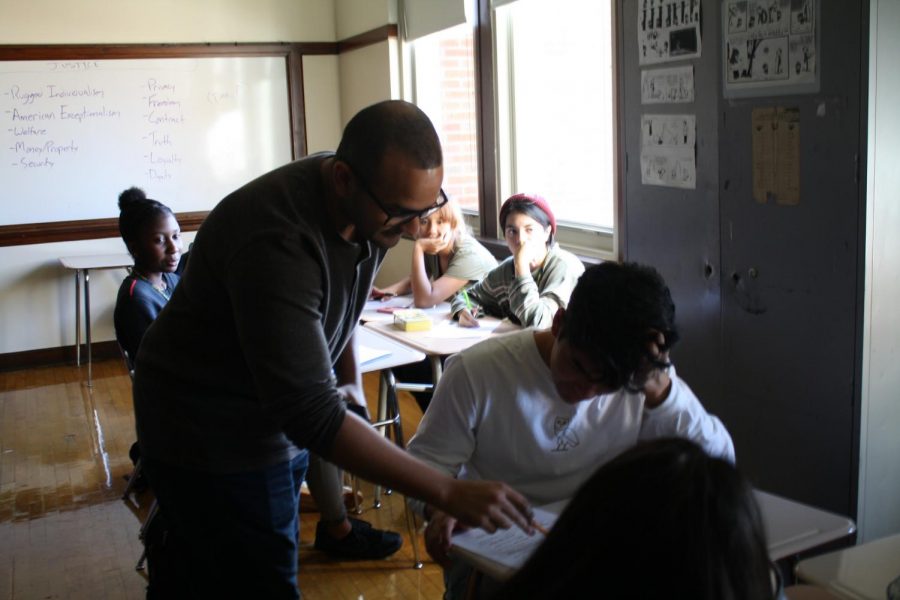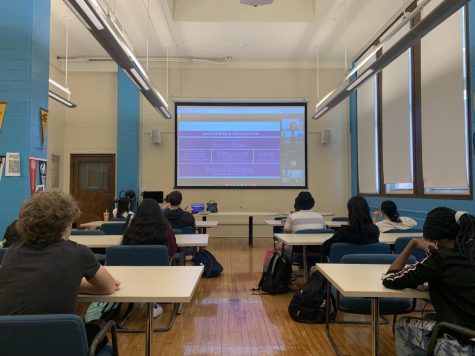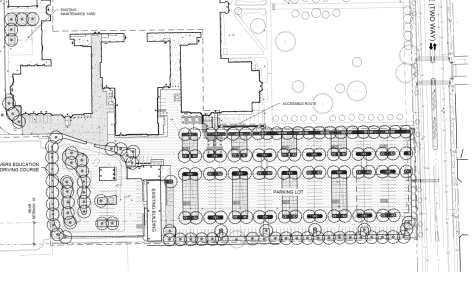Optional homework gaining ground at Lane
Tarbhai, who has joined the optional homework movement, is working with his AP United States History student.
October 23, 2017
After a long seven hour day of school, band practice, and a 30 minute drive home, junior Garrett Dunne, Div. 953, finds it unnecessary to do hours of homework on topics he understands.
Luckily, he is one of the several students at Lane who have experienced teachers offering optional homework.
A couple history teachers at Lane have begun moving away from assigning large amounts of homework every night, or making it worth little to no percentage of a student’s overall grade, according to Mr. Tarbhai, an AP United States History teacher,
“If a student can just read through and absorb a chapter without taking notes, why should their grade be affected by doing unnecessary work?” Tarbhai said.
Tarbhai avidly supports assigning optional homework that does not affect a student’s overall grade in the class.
Tarbhai said, “ultimately when you take a class, you’d like to think that the grade you’re receiving is a reflection of what you know about that particular topic, or that particular class, or that particular curriculum.”
Other teachers of the Lane community have been moving towards this new optional homework philosophy, according to Tarbhai.
Math teacher Mr. McAdam has also transitioned to the movement of optional homework for his students.
“I just kept running into this issue where I felt like homework was no longer a useful tool for the students as a learning process, because it became about getting it done, not about understanding it,” McAdam said.
McAdam offers his students out of class daily practice problems, followed by a weekly quiz on the information. He said his system gives students the opportunity to review the information they need, and eliminate busy work.
“I don’t really like assigning homework because you basically have to assign it so that the person who is struggling the most has sufficient practice,” McAdam said.
This is the first year McAdam has implemented the optional homework system in his classroom. Several of the teachers on the Pre-Calculus committee have stopped assigning mandatory homework, according to McAdam.
Dunne, who is currently enrolled in McAdam’s Pre-Calc class, said the homework setup simulates the college system, where homework will not be checked in daily.
“It lets me form my own schedule — I’m able to do whatever I want, when I want,” Dunne said.
McAdam said the optional homework system is making students more independent as they become upperclassmen.
“I think it makes sense to kind of scale back on what the requirement for homework is as you get older,” McAdam said. “Freshmen should probably have to do all the homework to develop the habit of practicing the problems, and as they start to get a little bit more mature, we start to give them some choices about whether they want to do all the work.”
Similar to McAdam’s grading style, Tarbhai makes his students accountable for their knowledge with only two categories in grade book. The assessment category is worth 100 percent of students grades and homework is worth nothing, according to Tarbhai.
The optional homework assigned to students includes numerous online resources, such as textbook readings, practice quizzes and teacher notes, Tarbhai said. His alternative system of voluntary work has found a way to reach the mixture of visual, auditory and kinesthetic learners that make up the student population at Lane, he said.
“I have 150 students and all 150 students are not going to learn the same way,” Tarbhai said. “I’m not going to have the appropriate teaching style to be able to teach every single student according to their best learning style.”








